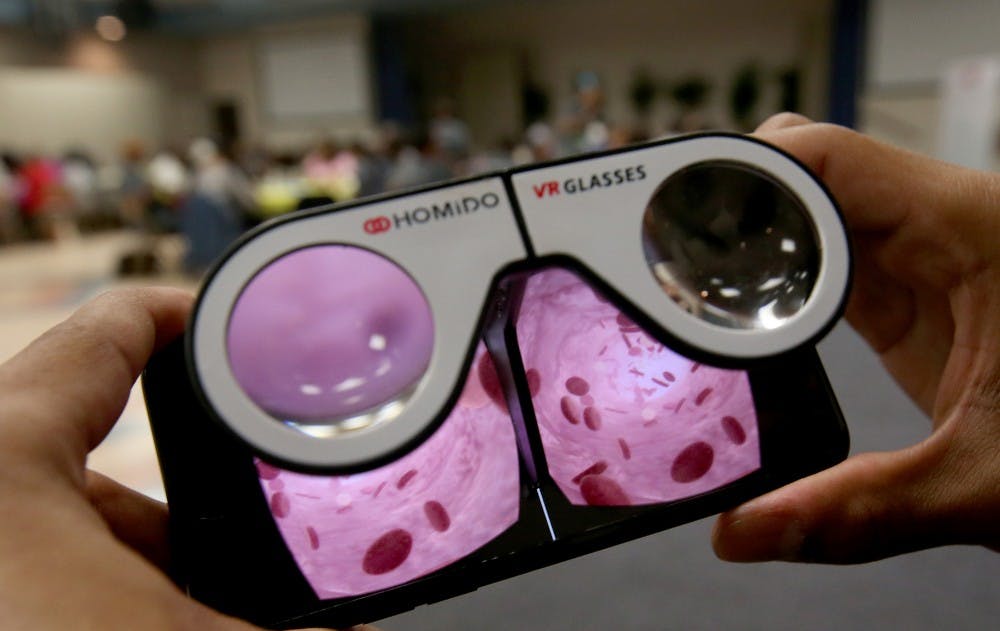Twenty-four USC faculty members spent a week of their summer learning how to incorporate virtual reality and mixed reality into their classrooms and create their own virtual worlds.
Faculty were taught 360-degree technology, virtual reality systems, augmented reality applications, operation and creation of virtual worlds and how to integrate within and outside the classroom. Participants were split into teams to create their own virtual worlds and presented their final works to the class.
“You’re surrounded by faculty on campus who are trying to take their skills and knowledge to the next level and that’s how the university gets to the next level,” said Augie Grant, director of the Center for Teaching Excellence and the organizer for the inaugural Virtual Reality boot camp.
Gary Moore, assistant dean for academic technology in the School of Law, was a part of a group creating a virtual hotel room and plans to create a virtual crime scene for the Children’s Law Center at USC. The virtual crime scene is aimed at teaching Department of Social Services workers evidence gathering
He conceded it would take plenty of work but was thankful for the program's help.
“So you’d actually go into each room and then you might see evidence that you would actually pick up, bag or something like say you would take a cotton swab,” Moore said.
When asked about his most meaningful takeaway from the boot camp, Moore spoke about the versatility of virtual worlds.
“Instead of building an actual crime scene, like taking a whole space and building a crime scene, a virtual crime scene might be a lot cheaper to do and portable and be able to take it places,” Moore said.
Media and technology specialist Robert Grookett and associate director of the Office of Distributive Learning Trena Houp, co-workers, created a 360-degree video tour of their office to help faculty learn more about what they have to offer.
They also have a larger goal of creating a virtual world for online students.
“A place for them to kind of go in this virtual space and learn about all the stuff on campus 'cause they’re not here, so they can see what’s on campus, see what’s available, see what resources we can give them,” Grookett said.
Both Grookett and Houp plan to focus on accommodating online students.
“Especially for the online-only students, we’re thinking it will give them a place to kind of feel more connected to the USC campus even though they’re not on campus and it could be an area where they can meet with other students who are also taking online courses,” Houp said.
Grokett added that virtual reality can help those who can’t experience certain situations like law enforcement-related internships because of liability risks and other concerns.
“The best thing we’ve done with all this is start a conversation, and we’re sparking ideas and people are coming up with ways they can use it,” she said.
Computer science instructor Jeremiah Shepherd, who teaches Creating Virtual Worlds, said the goal of the boot camp is not to perfect the faculty's grasp of the systems but to simply act as an introduction.
He believes that augmented reality is the future of education.
“With augmented reality especially, as phone technology keeps increasing, then you can take that wherever and you can do whatever you want with it,” Shepherd said.
Grant believes bringing these kinds of technologies to campus will give USC students an advantage in competitive fields.
“Virtual reality gives a chance for students to experience things, and through that experience gain not only additional knowledge but gain practice that will help them,” Grant said.

